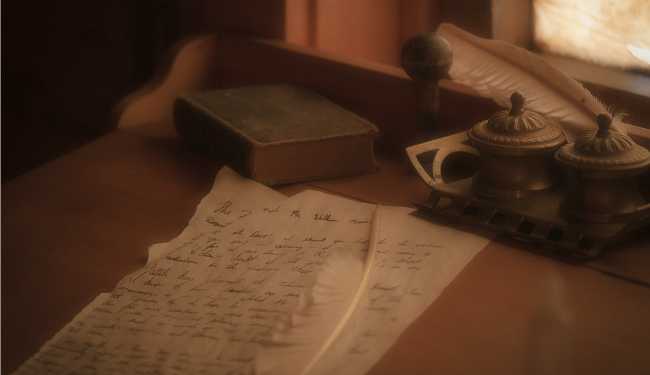On September 6, 1782 Martha “Patsy” Jefferson, beloved wife of Thomas, died at Monticello. She had not recovered from the birth of their sixth child, some months earlier. Jefferson tended her for long weeks, never leaving her bedside. After her death he closed himself up in his room for weeks more. He never remarried.
Jefferson loved Patsy, and never recovered from her death. Neither did he write or speak about it to anyone. The closest he came was in a note to his dear friend John Adams on the passing of Abigail. In his short note, dated November 13, 1818, he wrote:
I know well, and feel what you have lost, what you have suffered, are suffering, and have yet to endure. The same ills have taught me that, for ills so immeasurable, time and silence are the only medicines.
Jefferson was so private about his private life that Joseph Ellis’ classic biography of him is titled American Sphynx. But some secrets come to light. Shortly before Patsy died, she and Thomas copied, in their own hands, this quote from Thomas Sterne’s Tristram Shandy:
Her Hand: Time wastes too fast. Every letter I trace tells me with what rapidity life follows my pen. The days and hours of it are flying over our heads like clouds of a windy day, never to return more. Everything presses on. His Hand: And every time I kiss thy hand to bid adieu – every absence which follows it are preludes to that eternal separation which we are shortly to make.
Jefferson burned every letter he and Patsy ever exchanged. They were private letters. But this note was folded, with a lock of her hair, and hidden away in a secret compartment, in a secret drawer, in the table by his bed. When the note was found after Jefferson’s death, the paper had been unfolded and refolded so many times it barely held together. How many nights had he taken it from its hiding place to reread their last note, and to stroke again his wife’s hair?
Jesus tells us in the Sermon on the Mount, “where your treasure is, there will your heart be also” (Matthew 6.21). Jefferson was known for prizing his books, his wines, his gardens, and his singular home. But he kept his heart hidden in a secret compartment of a secret drawer.
Few of us are as intentionally inscrutable as Jefferson - fewer still wear our hearts on our sleeves. How little we know of each other. How little we show to each other.
God knows. The reason He chose the boy David to be king was because He saw into the young shepherd’s heart (I Samuel 16.7). David fully felt and cherished the penetrating gaze of God. He wrote in Psalm 139:
Oh God you have searched me and known me. You know when I sit down and when I rise up. You understand my thoughts from afar. You scrutinize my path, and my lying down, and are intimately acquainted with all my ways. Even before there is a word on my tongue, behold, O LORD, you know it all. You have enclosed me behind and before, and laid Your hand on me. Such knowledge is too wonderful for me. It is too high. I cannot attain to it. (psalms 139:1-6)
The point I am making is this – we should not deceive ourselves. Nothing is hidden from Him (I Corinthians 4.5). Whatever is in our heart: the love, the heartache, the pride, the pain – whatever we have hidden away is known by God. This means we should talk to Him about our heart’s content now. He already knows what is there. He loves us (John 3.16). He is working for our salvation (Habakkuk 3.13). That which we have locked away might be benign, it might be insidious. It is, in either case, powerful. Thus, we must be honest about it with our God. To fail to do so could have tragic consequences.
We must talk to Him now. We will answer to Him later.
